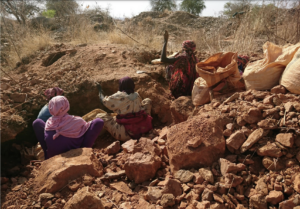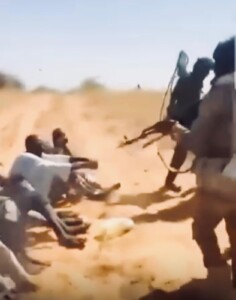Sudan PM: ‘Juba Peace Agreement implementation faces financial challenges’
Sudan’s Prime Minister Abdallah Hamdok acknowledged that the implementation of the Juba Peace Agreement faces serious financial challenges. He said so during an interview with the national Sudan satellite TV channel yesterday evening.
 Prime Minister Abdallah Hamdok during his interview on national television (Social media)
Prime Minister Abdallah Hamdok during his interview on national television (Social media)
Sudan’s Prime Minister Abdallah Hamdok acknowledged that the implementation of the Juba Peace Agreement faces serious financial challenges. He said so during an interview with the national Sudan satellite TV channel yesterday evening.
The implementation of the Sudanese peace agreement is taking place in “extremely complex circumstances, locally and internationally”, Hamdok added. He noted that the future United Nations Integrated Transition Assistance Mission in Sudan (UNITAMS) will work with the government in 2021 to bring in financial resources.
Sudan will be removed from the US List of State Sponsors of Terrorism on December 11, he announced. At this moment this list contains four countries: Syria (since 1979), Iran (since 1984), Sudan (since 1993), and North Korea (since 2017).
Hamdok described the Juba Peace Agreement as “a great and historic achievement”. He consideres it “the first step to put an end to the suffering of displaced people and refugees”. He stated that Sudan will be able to overcome the difficulties and challenges facing peace building.
He acknowledged women were poorly represented in the Juba negotiations. He hopes that this will be different during the peace implementation. Women are among those who suffered most from the wars, he said.
The government plans to have 26 ministers in the coming period in which power will be shared with the rebel movements of the Sudan Revolutionary Front. Sudan now has 22 ministers. A Ministry of Peace will be added as well.
The PM called for patience given the complexities of the broad alliance of Sudan’s military, civilians, and rebel groups that will govern Sudan. “We have to decide on a way of government that will not allow any party to be marginalised.”
“The belief that there is just one person who distributes all positions is a point of view inherited from the former regime”, he warned. “There is no one who dictates what the other should do.”
He said that peace negotiations have started with the main holdout rebel movements that did not sign the Juba Peace Agreement: tThe Sudan People’s Liberation Movement-North faction under the leadership of Abdelaziz El Hilu in South Kordofan and parts of Blue Nile state, and the mainstream Sudan Liberation Movement founded by Abdelwahid El Nur (SLM-AW) in Darfur.
The Constitutional Document, signed by the then ruling Transitional Military Council and the opposition Forces for Freedom and Change in August 2019, clearly specified that peace would be the priority of the transitional government. “We have done so”, Hamdok said.
Hamdok further explained that managing the country without the army is not possible at this moment. “Our patience with the challenges stemming from the partnership between civilians and the military is not a sign of weakness on our side, but a conscious decision to spare our country from slipping into the abyss.”
Sudanese Pound
The government does not intend to let the Sudanese Pound float. “We agreed we will deal with the Pound in a flexible way. We are looking for a fixed exchange rate that reflects reality,” the PM said in the interview.
The mining sector, especially gold mining, can help to solve the current shortages of hard currencies. “We do not want an ideological alignment in dealing with international financial institutions, but rather a trend towards a pragmatic economy.”
The government decided to support production instead of consumption, also because the latter option encourages smuggling. “We decided to lift subsidies from just two commodities, petrol and diesel, and instead focus on production, health, and education.”
Radio Dabanga’s editorial independence means that we can continue to provide factual updates about political developments to Sudanese and international actors, educate people about how to avoid outbreaks of infectious diseases, and provide a window to the world for those in all corners of Sudan. Support Radio Dabanga for as little as €2.50, the equivalent of a cup of coffee.












 and then
and then